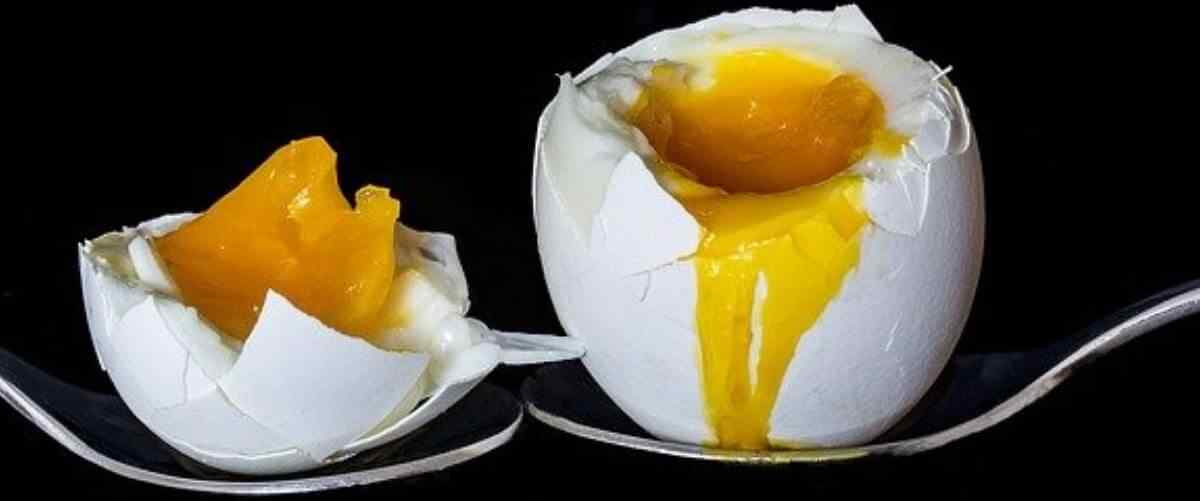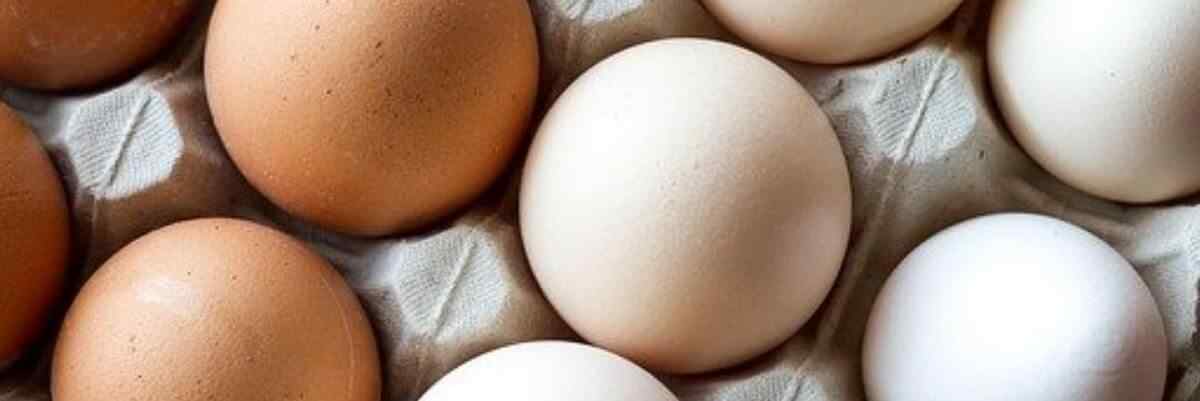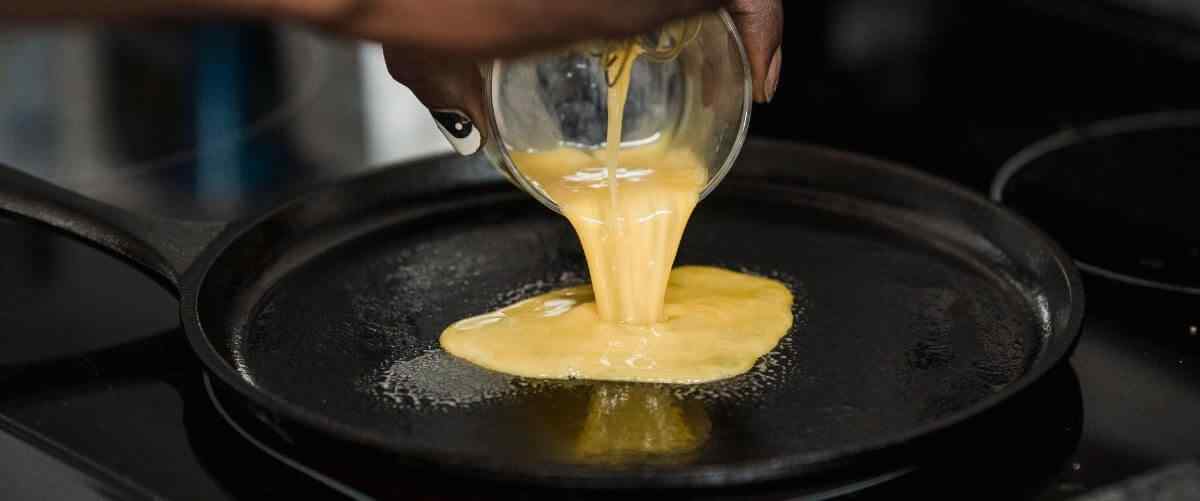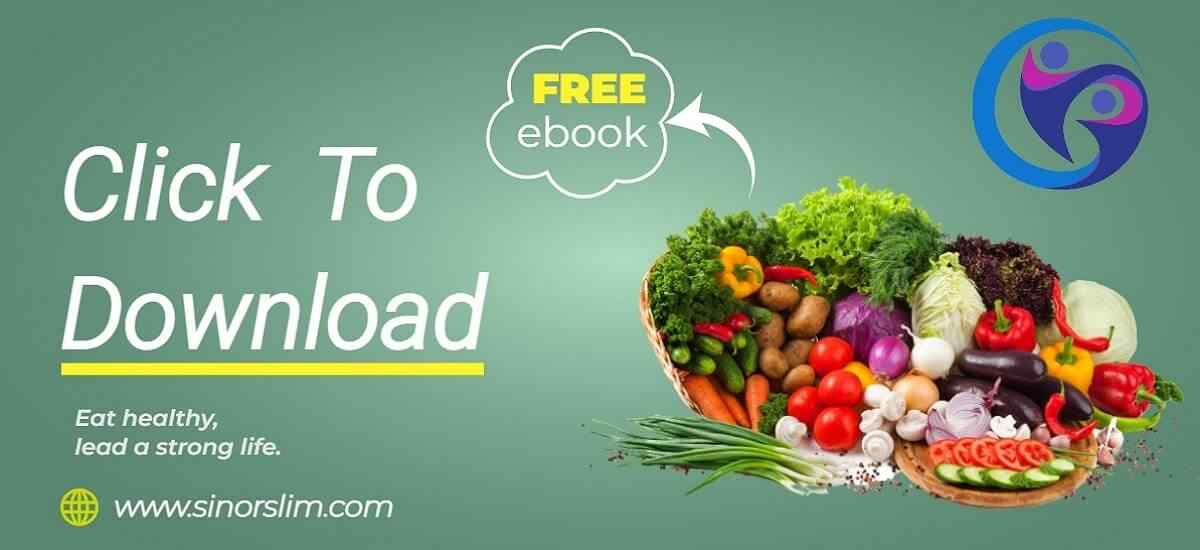
When people think of the Keto diet, they usually think that it is all about increasing fat intake. However, it is not only about fat intake. There are many different types of fats that you can eat along with the lean meats and dairy that you should be eating. This article will explore one kind of food that is essential for a healthy diet, this food plays a very important role in any healthy eating diet plan, and should be included into your Keto diet too. That food is egg.
Eggs are very healthy because they provide a variety of nutrients, including proteins, healthy fats, vitamins, and minerals. Almost every American eats at least one egg per day, so eggs are already a popular and staple part of everyday diets.
Eggs are a great way to start your day and they will keep you going for hours! You can also have eggs as a snack or lunch, or even dinner. Eggs should be a staple of any number of conventional ketogenic diets too!
If you are thinking about including eggs in your low carb diet plan, you are probably wondering how many eggs you can eat each day. I'll answer that below and show you more fun facts about eggs: their nutritional profile, their health benefits, debunk some egg and cholesterol myths, talk about how much cholesterol in eggs white and the cholesterol in eggs yolk (and why it is not important), and the Keto egg diet, and what could happen if you eat too many eggs.
The ketogenic diet is a low carb, high-fat diet. If you're really new to Keto, it may seem counterintuitive, because when most dieters think about dieting and the best way to lose weight, they usually think of a low-fat diet and carefully counting calories as the only way to succeed.
Keto works in a different way. If you plan to follow the ketogenic diet, or if you are already on Keto, you should limit your daily carbohydrate intake to no more than 50 grams of carbohydrate, and the rest of your total daily calorie intake should come from high amounts of fat.
The standard ketogenic diet achieves the best results and usually contains 70% fat, 20% protein, and only 10% carbohydrates. These are the common rules to Keto to achieve the metabolic state of ketosis.
For most people, this is a big change in food intake and a completely different type of diet, which means that there may be some side effects due to the change, more on that later, but nothing too serious.
I have talked in more detail about Keto in another article here.
If you are looking for a beginner-friendly comprehensive Keto diet plan, I recommend The Custom Keto Diet. I have reviewed it here. It customizes Keto to fit into your lifestyle, food preferences, and comes with delicious recipes that include eggs.
I have written in more detail about some of the main benefits of Keto here.
But briefly, it is amazing for healthy weight loss and reducing belly fat, you can really lose a lot of weight and experience rapid fat loss. Keto increases your mental clarity and ability to think more clearly.
You can reduce your risk for serious chronic medical conditions when on Keto such as cardiovascular and other heart disease and cancer. You can improve your cholesterol and blood pressure and reduce your insulin resistance which can improve your body's ability to manage blood sugar levels.
A word of warning, the Keto diet is not for everyone. People who are considered obese or have high blood pressure, diabetes or other health issues should avoid it because of the restrictive nature of this type of diet.

Yes, 100 percent! In fact, eggs are not only Keto-friendly, but they are also a key part of the ketogenic diet. They are packed with a variety of nutrients, are a great source of protein, healthy fats, vitamins, and minerals. In addition, eggs are often referred to as superfoods because of their many benefits.
Eggs have a fantastic macronutrient profile that is basically the ideal Keto ratio. In fact, eggs are a staple of the ketogenic diet, it is almost a recommendation to eat them often.
It is possible to be in ketosis without eating eggs, but there is a reason why they feature in most Keto recipes: they are packed with nutrients, widely available, versatile, and of course delicious. They are one of the superfoods of Keto as they are low carb and high fat.
Because they have an excellent macronutrient split, eggs fit very well into a ketogenic diet. Keto requires you to minimize your carbohydrate intake and increase your fat intake so that you can achieve ketosis. This is where the body burns fat for energy instead of carbohydrates.
Now you probably feel ready to add eggs to your ketogenic diet. But you are probably wondering how many eggs you can consume a day. Does overeating eggs help you lose weight? Or is it unhealthy to eat more than one egg a day?
I'm going to answer that for you in the next section
There is no recommended amount for how many eggs people should eat. Eggs can be enjoyed and are essential as part of a healthy and balanced diet.
The amount of eggs you can eat per day depends a lot on your personal daily Keto carb limit. If you ate literally nothing other than eggs, if your carb limit is 50 grams per day and you eat 2000 calories a day, you could eat 26 eggs per day. If you attempted this you would have other health issues as while eggs are super nutritious, it is not advisable to eat only one food type for a balanced diet. You need to eat a variety of foods to get all the essential nutrients you and your body requires for a healthy lifestyle.
You can include eggs in your daily Keto meal plan by eating an amount that you can stomach (pun intended). I eat two eggs every day for breakfast for an awesome boost to the start of the day. For the remainder of your diet you can use the rest of your carb and protein intake limits through other Keto foods such as fresh meat, poultry, seafood, non-starchy vegetables, nuts, and seeds. To read a longer, more comprehensive list of Keto foods, you can read my article here.

Eggs are perfect for Keto as they help promote weight loss because of their high protein and fat content. Eggs can also help you lose weight because eggs contain ghrelin, a hormone that makes you feel fuller quicker so you eat less food and fewer calories.
Eating eggs can also be beneficial for reducing the effects of Keto flu and Keto headaches, which you can read more about here (Keto flu) and here (Keto headaches).
If you are on Keto already and are experiencing a short-term weight loss plateau you might consider an egg fast diet to make weight loss quickly start up again; this would entail eating almost nothing but eggs for 3-5 days. As mentioned above, eating only eggs can increase the risk of nutritional deficiencies because eggs lack some essential nutrients found in other keto foods, so 3-5 days is the maximum amount of time you should stay on this egg fasting diet plan. I talk about egg fasting in more detail in the next section.
The Keto egg fast is a great way to kick-start your diet. The ketogenic egg fast is an aggressive short-term fasting program that primarily restricts your diet to eating eggs, butter, cheese, or other sources of healthy fats.
It has become very popular in some online ketogenic communities, primarily for breaking weight loss plateaus or resetting ketosis after a break. The goal being to achieve weight loss and re-burn fat as soon as possible. Like any other intense, fast or restricted diets, it is quite an extreme way of eating.
The egg fast diet has some rules:
Eat at least 6 eggs a day, preferably a lot more. Eggs should be from free-grazing eggs for the extra health benefits.
For every egg you eat, eat one tablespoonful (about 15 grams) of butter; mayonnaise or other healthy fats can be a substitute.
For every egg you eat, you can also eat up to 28 grams of full-fat cheese.
You should eat your first egg of the day within 30 minutes of waking.
Drink at least eight glasses of water a day to keep your fluid intake healthy.
This extreme diet should not be continued for more than five consecutive days.
It is important to note that this egg fast diet can put significant stress on your body, so should not be attempted without good medical advice.
Even for those who try it, it is only intended to be a short-term measure; 3 to 5 days is enough time on the egg fast diet. Personally, I prefer to follow a more sustainable low carb diet and incorporate into my Keto meal plan a variety of healthy, Keto-friendly egg dishes.
One large egg contains:
6 grams of protein
5 grams of fat (increasing to 7 grams when fried or in an omelette)
0.4 grams of carbs
187 micrograms of cholesterol in eggs yolk
0 micrograms of cholesterol in eggs white
Eggs also contains Vitamin A, Vitamin B2, Vitamin B5 (Pantothenic Acid), Vitamin B12, Vitamin C, Vitamin K, Folate, Biotin, Phosphorus, Selenium.
In addition, egg yolk contains cholesterol and fat-soluble vitamins such as vitamins D and E, as well as essential fatty acids.

The number of calories in an egg depends how you cook and prepare it; and of course the size of the egg itself.
For large eggs:
1 large egg scrambled contains 91 calories.
1 large egg hard boiled contains 78 calories.
1 large egg in an omelette contains 94 calories.
1 large egg poached contains 71 calories.
The raw yolk of a large egg contains 55 calories, while the raw whites (albumen) contains just 17 calories.
It's no secret that eggs are one of the most nutritious foods. They are also very affordable and versatile that you can cook them in many different ways.
Here are a few ways your body benefits from eating whole eggs:
Eggs are a main source of high-quality protein, so perfect if you are looking for high-quality protein to support your workouts, build muscle mass on Keto, and repair your tissue.
Eggs promote the health of your nervous system; one large egg contains 140 milligrams of choline in its yolk. Most people do not have enough choline in their diet. Choline builds cell membranes and is an essential nutrient needed to produce acetylcholine, a neurotransmitter that has an important part in brain function; lower levels of acetylcholine are associated with Alzheimer's disease.
Eggs contain two antioxidants (lutein and zeaxanthin) that are important for eye health.
Eggs contain natural enzymes and lysine, which are essential nutrients to properly metabolize proteins.
Eggs can boost your immune system due to their antimicrobial and immunomodulating effects.
Eggs from grass-fed hens are high in omega-3 fatty acids that help reduce levels of triglycerides in your blood, a risk factor for heart disease, source.
Eggs may also reduce your risk of stroke
Eggs are a source of DHA (docosahexaenoic acid) which is an essential nutrient that can prevent depression, anxiety, and Alzheimer's disease, source.
During pregnancy, women need at least 200mg daily of DHA to support the development of the brain, eyes and nervous system of the fetus, so DHA is very important throughout the lifespan.

Eating too many eggs can lead to a few potential side effects and dietary issues. The main ones are diarrhea and bloating, especially if you are not used to a lot of fat or if you have an egg intolerance.
Unless you have an egg intolerance the simplest way of preventing any negative effects of eating too many eggs, is to simple eat one or two a day. You can then increase the number of eggs gradually to see how many your diet can tolerate.
If possible, keep a food consumption diary that records your meals and how your body reacts to what you are eating.
If you can't eat eggs because of an allergy or intolerance, or if you want to try vegan-Keto, there are Keto-friendly sources of protein and fat. Plant-based alternatives to eggs include avocados, walnuts, chia seeds, macadamia nuts, and almonds. Nut butter and a handful of cashews.
Animal-based alternatives include different types of meat, poultry, and seafood, you can read my beginner-friendly Keto foods article here.
People with high cholesterol often ask "do eggs increase cholesterol?", since cholesterol in egg yolk is very high. However, for most people the cholesterol in eggs has little to no effect on blood cholesterol, source.
This is good news for those of us that love eating eggs especially as chicken eggs are an affordable and a rich source of energy and protein and are a nutrient-dense food as I mention above.
Unless you have a specific medical condition that severely restricts cholesterol intake, you don't have to worry about the cholesterol in eggs.

There have been a few studies that have found a link between bad (LDL) cholesterol and eggs, but this association is likely due to other foods that are commonly eaten with eggs such as bacon, sausage, and ham.
The cholesterol in eggs does not appear to raise cholesterol levels in the same way that other foods that are high in cholesterol do, such as trans-fats and saturated fats.
In addition, the way that eggs are cooked may influence the risk of increased heart disease. Frying any food in oil or butter is bad for you, if you must fry food then use a healthier oils like olive, coconut, or avocado, you can read more here.

It is recommended that if you have high blood cholesterol that you should limit the amount of cholesterol you eat to about 300mg per day, which is about two medium-sized eggs. It is fine to eat three to four eggs a week if you have high blood cholesterol. The health benefits of eating egg are too important to not include eggs in your diet.
So yes, eggs are a source of cholesterol, but cholesterol is a vital nutrient that should not be eliminated from your diet as it can increase brain functioning and also aids in the prevention of stroke. As the cholesterol in eggs has little to no effect on levels of cholesterol in blood that can cause heart problems eggs are a safe, highly nutritious and healthy food.
So, do eggs increase cholesterol? There is no real evidence that eggs have any effect on raising levels of LDL cholesterol.
Studies show that it is perfectly safe to eat up to three whole eggs per day, source. There is little to no evidence that eating more than this is harmful, though you need to consider how you cook them (try to avoid frying wherever possible).
You can click on this image to take you to a free Keto ebook. The ebook contains some delicious and simple Keto diet recipes to try out giving you some great Keto breakfast ideas as well as more information about Keto. There is a delicious Keto egg salad and an amazing and highly recommended spaghetti squash casserole recipe. Click the image below to get your free copy today.

There are many health benefits to eating eggs, this is why they are consumed by most people living a healthy lifestyle. They are packed with nutrients that we all need and they are very Keto-friendly.
Eggs feature in most Keto recipes and should be considered essential for a well-balanced Keto diet.
For a quick Keto weight loss boost, you can try the egg fast diet, but this is not recommended for the long-term as you need to eat a balanced diet rather than one that comprises 90% eggs.
Despite the negative press from a few years ago, nutritional science has rehabilitated the image of eggs. They are now considered an important and healthy part of every diet. They actually can help lower bad cholesterol and provide a rich source of good cholesterol. So, what are you waiting for? Crack open a delicious egg and start your Keto journey the right way. To give your Keto journey a real boost buy the Custom Keto Diet from this link. You can read my comprehensive review here.
So, in summary, eggs are delicious, highly nutritious, can reduce risk of heart disease and stroke, and are important in prenatal development, they are in effect the perfect food.
They are also cheap, easy to cook in a wide variety of ways, and are an excellent side dish that perfectly accompanies almost any other food. As you can probably tell, I am a fan.
For more information about Keto and weight loss subscribe to my YouTube channel, new videos are uploaded every Tuesday.